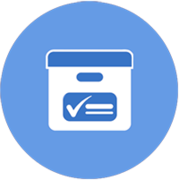Alternative assessment - Performance assessment
 Conception : Clarification - Explicitation
Conception : Clarification - Explicitation
- Authentic assessment: Authentic assessment is a form of evaluation that measures a student's ability to apply their knowledge and skills to real-world situations, rather than just memorizing and regurgitating information. It involves the use of tasks that closely resemble the types of challenges that students are likely to encounter in their professional or personal lives, such as projects, portfolios, performances, simulations, and real-life scenarios. The goal of authentic assessment is to provide a more accurate and meaningful measure of a student's competence, as well as to promote deeper learning and critical thinking.
- Performance assessment: Performance assessment is a type of assessment that measures a student's ability to apply their knowledge and skills to a particular task or project. It involves the evaluation of a student's performance based on their ability to demonstrate what they know and can do, rather than relying solely on traditional tests or quizzes. Examples of performance assessments can include writing an essay, solving a complex problem, conducting a science experiment, or delivering a speech. The focus is on the process that the student uses to complete the task, as well as the outcome of the task itself. Performance assessments are often used to measure higher-order thinking skills such as analysis, synthesis, and evaluation, and are considered a more authentic way of evaluating a student's learning than standardized tests.
![]() Conceptions erronées et origines possibles
Conceptions erronées et origines possibles
- ...............................................................................
................................................................................ ................................................................................
![]() Conceptions: Origines possibles
Conceptions: Origines possibles
- The concept of alternative assessment emerged in the 1980s as a response to concerns about the limitations of traditional, standardized forms of assessment. Traditional assessments, such as multiple-choice tests, were criticized for measuring only a narrow range of skills and knowledge and not taking into account the individual strengths and weaknesses of students.
Alternative assessment was initially developed in the context of performance-based assessment, which focused on measuring student learning through the demonstration of skills and knowledge in real-life situations. This approach was influenced by research in educational psychology that emphasized the importance of assessing higher-order thinking skills, such as problem-solving and critical thinking.
As the concept of alternative assessment evolved, it came to encompass a wider range of assessment methods beyond performance-based assessments. These included authentic assessments, portfolios, self-assessments, peer assessments, and other methods that emphasized student engagement and participation in the assessment process.
- The concept of traditional assessment can be traced back to the origins of formal education systems, which were designed to measure students' knowledge and understanding of prescribed content. The earliest forms of assessment were often based on oral or written exams, which tested students' ability to recall and regurgitate information.
As education systems became more formalized in the 19th and early 20th centuries, standardized tests and other forms of assessment were introduced as a way of measuring student performance and ensuring accountability. These tests typically involved multiple-choice questions or other fixed-response formats that could be easily scored and compared across large groups of students.
The use of traditional assessments became more widespread in the mid-20th century with the rise of behaviorism, a psychological theory that emphasized the importance of observable behavior in learning and assessment. This theory led to the development of objective, behaviorally-based tests that focused on the mastery of specific skills and knowledge.
 Conceptions liées - Typologie
Conceptions liées - Typologie
 Concepts ou notions associés
Concepts ou notions associés
| Références
| |||
|---|---|---|---|
|
Sur le Portail Questions / Réponses |
Sur Portail de Formation Gratuite |
Sur des sites de Formation |
Sur DidaQuest |
| Alternative assessment - Performance assessment sur : Wikipedia / Wikiwand / Universalis / Larousse encyclopédie / Khan Académie | |||
| Sur Wikiwand : | |||
| Sur Wikipédia : | |||
| Sur Wikiversity : | |||
| Sur Universalis : | |||
| Sur Khan Académie : | |||
 Éléments graphique
Éléments graphique
 Stratégie de changement conceptuel
Stratégie de changement conceptuel
 Questions possibles
Questions possibles
 Bibliographie
Bibliographie
Pour citer cette page: (assessment - Performance assessment)
ABROUGUI, M & al, 2023. Alternative assessment - Performance assessment. In Didaquest [en ligne]. <http:www.didaquest.org/wiki/Alternative_assessment_-_Performance_assessment>, consulté le 19, mai, 2025
- ..................
- ..................
- ..................
- ..................





